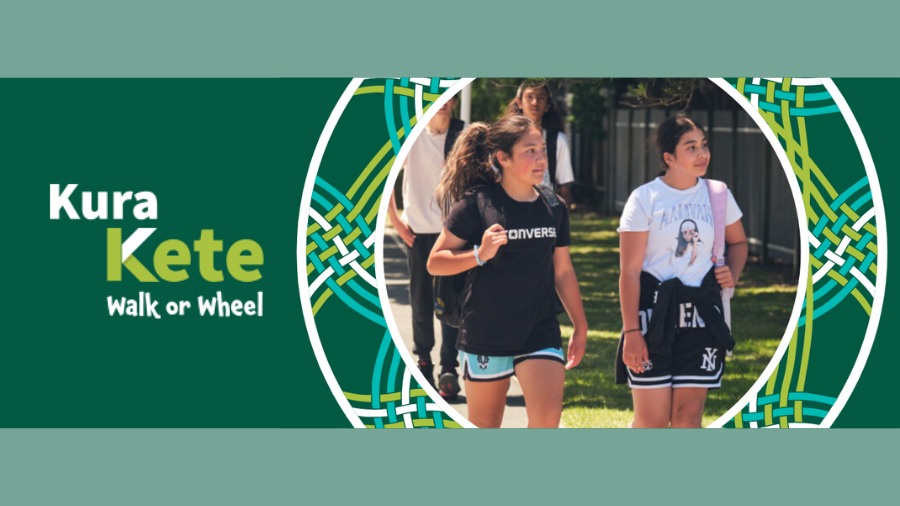Huringa Āhuarangi: whakareri mai kia haumaru āpōpō
Climate Change: prepare today, live well tomorrow
The climate change learning programme aims to support climate literacy for young people aged 10 - 14 in Aotearoa New Zealand. Climate literacy is an understanding of how the climate system works, how human actions influence climate, and how climate influences people and other parts of the Earth system (NOAA 2024). The programme builds understanding through an exploration of critical global, national, and local responses aimed at mitigating and adapting to predicted impacts of climate change.

NOTE: This programme has recently been updated in November 2024 and requires a short registration process for teachers to access the full programme, which remains free for Aotearoa schools.
Please scroll down to the "Programme Update and Access" section below and complete the appropriate form.
With Aotearoa contexts and mātauranga Māori embedded throughout, ākonga are prompted to think beyond themselves, to tautoko and connect with the intergenerational community responding to the problem.
Most importantly, the resource supports and empowers all learners to have a voice, to take action, and to play their part in a larger, systematic response.
Developed by Future Curious, in collaboration with both national and local organisations in Aotearoa, the programme consists of a User Guide, eight learning modules, and Te Tai Unuora, a Wellbeing Guide. While all modules should ideally be covered in order, they don’t need to be taught in their entirety and can be adapted to work for your ākonga and school.
To learn more about the programme and its approach, use the links provided below. If you are interested in accessing the full programme please continue reading the next section.
- Programme User Guide – an outline of the learning modules and useful links
- Te Tai Unuora | Wellbeing Guide - complementing the programme's approach
Programme Update and Access
Huringa Āhuarangi: Whakareri mai kia haumaru āpōpō has been freely available to schools and interested organisations since its extensive audit in 2021. We frequently receive messages about the amazing engagement and actions that sprout from participating in the programme.
In late 2024, with donations and in-kind support from supporting organisations, the programme has been updated to reflect current climate science and knowledge. In response to participant feedback and use, this included updates to the teaching and learning sessions. Refreshed and better than ever, we now invite those wishing to use the programme to select from the options below and complete a short form to request access.
Schools and Home Educators
Aotearoa teachers and home educators continue to have free access to the programme. Completing the short form below allows us to get a sense of who and where the programme is being used, so we can offer extra support and keep you updated.
Aotearoa Teachers and home educators register here
Aotearoa Organisations
If you're an organisation or individual working in Aotearoa (environmental education provider, local council, community organisation) we request a funding contribution to access the learning programme. The amount will depend on your organisation and intended use. Your contribution will go towards ensuring the programme remains up to date and responsive to schools’ and other users’ needs. It will also allow the programme to evolve in line with current climate education research and support professional learning opportunities. Please complete the short form below and we will be in touch to discuss.
Aotearoa Organisations/Individuals register here
International Teachers and Organisations
If you are not based in Aotearoa NZ and would like to enquire about using the programme then please get in touch with us through our Contact form here.
Resource Copyright
The copyright in this resource is not Crown Copyright. The copyright vests in Future Curious Limited and may include copyright licensed by Future Curious Limited from third parties. Teachers may use this resource on a royalty free basis in schools in Aotearoa New Zealand. For any other use, interested parties must obtain permission to reproduce part of all of this resource from Future Curious Limited (using the processes described above).
Climate Learning in Action
Read more about the climate change learning programme in these Spotlight articles:
Climate Education: A Teacher's Perspective






